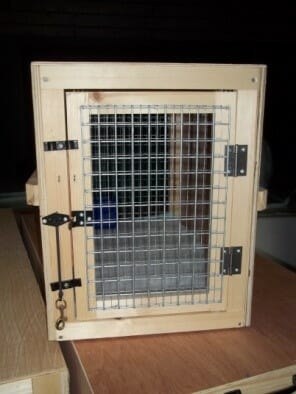Moving Pets to Portugal

Pets brought to Portugal must have a microchip implanted linking to a pet passport. This is the only form of identification acceptable and must be implanted before the rabies vaccination is administered.
All pets must have a Rabies Certificate signed by a vet. Pets need to be at least 12 weeks old to be given a rabies vaccination. You will have to wait 21 days before you take your pet to Portugal. Pets can travel to Portugal if they have a current one year vaccination (a primary vaccine). They can also travel with a 3 year vaccine provided it has been administered less than a year before travel. Where you are coming from an ‘unlisted country’ it will also be necessary for the pet to have a blood test.
Pet owners must arrive within five days of their pet, otherwise it will be treated as a commercial move, which will involve additional costs and different regulations.
Pets must arrive in Portugal through Lisbon, Oporto, Faro, Funchal, Ponta Delgada, or Terceira Island.
Can UK citizens take pets to the EU in 2021?
When the UK was a member of the EU if you were taking a pet to Portugal and back again you could do so without them having to go into quarantine, provided that they had a pet passport and were microchipped. However, from 1 January 2021 pet passports are no longer valid for pets from the UK.
The EU has agreed that Great Britain should be given “part two listed” status, allowing pets to travel within its borders providing the owners obtain an animal health certificate (AHC), which confirms that your pet has been microchipped and vaccinated against rabies.
Your pet must be at least 12 weeks old before it can be vaccinated and the vaccination must have been carried out at least 21 days before they travel.
A new certificate will have to be obtained from your vet each time you travel with your pet within 10 days of the date you travel. The document is valid for four months, for a single trip into the EU, onward travel within the EU and for re-entry to Great Britain.
UK citizens resident in the EU
If you live in the EU and have a pet passport issued by an EU member state, it can be used to take your pet to the UK.
You will also be able to use the EU-issued pet passport to return to the EU as well.
Requirements for pets from Non-EU Countries
Dogs, cats and ferrets entering France from non-EU countries must be accompanied by a health certificate completed by a veterinarian within ten days from the date of travel. Exceptions to this requirement are animals from Andorra, Croatia, Iceland, Liechtenstein, Monaco, Norway, San Marino, Switzerland, and The Vatican.
Permits are required for birds, especially members of the parrot family. Pets are subject to the payment of duties on their own value, plus insurance and freight. The duty is about eight per cent of the aggregate value of the animal, plus insurance and freight.
There are no quarantine requirements.
Shipping Your Pet
If you are travelling long distances rather than trip by car and or ferri, it is essential your animal is properly looked after by professionals. You should ensure you are comfortable with the company you choose.
Obtain comparable quotes from several different companies as there are many different companies all with varying levels of service and cost. Check the reputation of companies you receive quotes from and talk to some of their customers (or other members of your own company who have used them) to ensure that they have had a good experience. Make sure you understand what is included in each quote and what will be your own responsibility.
Pets are normally transported as “live animal” cargo. Your pet will be carried in the specialist cargo hold of the plane which is heated and pressurized and this will normally need to be booked by a specialist pet shipping company.
Pets can also be shipped to some destinations with some airlines as “accompanied baggage”, but only if you travel on the same flight as your pet. This is booked directly with the airlines and is charged as excess baggage. You should check if there are any conditions or restrictions with the airline that may cause the pets flight to be cancelled at the last minute, for example temperature restrictions with some airlines.
Transport should be arranged well in advance and all travel documentation, vaccination and permit requirements should be fully researched.
Crates For Transporting Pets
If your pet is travelling longer distances by air, ensuring your pet flies in the right size crate will reduce stress and ensure comfort and security for the journey. Crates must meet the current Airline regulations ( see the current IATA regulations) these regulations do change from time to time and so just because the pet may have flown in a crate previously will not automatically ensure the crate you have meets the current regulations. The pets’ ticket price (Airway bill) is directly related to the volume of the crate in which the pets travel and so a few centimeters longer than needed not only means your pet may not feel as snug and safe but it could potentially cost you a couple of hundred pounds extra.
If you think it may help then you can arrange for the crate to be delivered to you prior to the flight so that your pet can become accustomed to it. For some pets this helps them adapt but for others they are much better to meet the crate on the day of travels and adopt it as their own ‘safe place’ away from home.
Make sure that the carrier has sufficient quantities of water for the journey, food is not permitted during the flight as it can be deemed as a choking hazard.
Ensure that the crate is marked with all appropriate details and have “this way up” labels clearly visible on all sides.
Pets are not permitted to be sedated for travel as the changes in altitude can have adverse effects on the pets health. There are some natural remedies you can use to help your pet feel more secure and comfortable for the journey, you should discuss these with your local vets and your nominated pet shipper.
